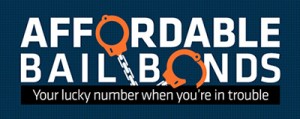If you get arrested, you can often be released from jail on bail until the time of your hearing. Before you make the call, however, check out these five terms you should understand when it comes to bail.
1. Bail Conditions
Once you are released on bail, if you break any law, you will be sent back to jail, and your bail may even be revoked. In addition, the judge may set certain conditions for you to follow specific to your case. For example, if you were arrested with a group of others (and you all were released from jail), the judge may prohibit you from contacting each other.
If you do break your bail conditions by contacting the others, you may be sent back to jail. Other common conditions may include avoiding alcohol, not driving, and any other behavior related to the crime you were arrested for.
2. Indemnitor
In many cases, to be released or to get a bail bond, you need an indemnitor. An indemnitor is just a person who agrees to pay the bail if you don’t show up to court. Many bail bondspersons require an indemnitor as a co-signer so they don’t have to worry about losing money if you prove to be a flight risk and they can’t find you.
Not just anyone can be an indemnitor. The bail bond company will check the indemnitor’s assets to determine that they can afford the bail if you do run away before your hearing.
3. Collateral
If you can’t find anyone who qualifies for an indemnitor, you may be able to use collateral with your bail bond. If you own a house, for instance, you can use it as collateral to back your loan. Collateral may also be used directly with the court.
For smaller items, the court or bail bondsperson may insist on keeping the item in their possession, but in most cases, if you use your house as collateral, you can continue to live in it until the trial. Once the trial is over, the collateral is officially returned.
4. Forfeiture
What happens to your collateral if you don’t show up to court? You forfeit it to the courts or the bail bondsperson. If you miss your hearing but you haven’t left town, the courts may hold a bond forfeiture hearing.
During this hearing, the judge determines if you have valid reason for missing the hearing. If you don’t, a warrant will be issued for your arrest. If you fail to turn yourself in, the court will begin forfeiture of your collateral, such as taking ownership of your house and property.
5. Bounty Hunter
If you don’t show up to court, the money loaned to you by the bail bondsperson could be seized by the courts. In other words, they get to keep the bail money that would have otherwise been refunded to the bondsperson. For this reason, many bail bonds companies work with fugitive recovery agents (bounty hunters) to find people who skip their hearing or try to run, so that the bondsperson doesn’t lose their money.
The bounty hunter will take you back to jail, and since you are now a flight risk, the courts will probably revoke your bail. The bounty hunter earns their wages by taking a percentage of the bail amount that will now be returned.
Getting arrested can be scary, so it’s nice to be able to spend the time before your hearing in the comfort of your home. Bail bondspersons provide an affordable way to pay for bail, but like any loan, there is interest to pay. For more information about bail bonds, contact us at Affordable Bail Bonds today.







